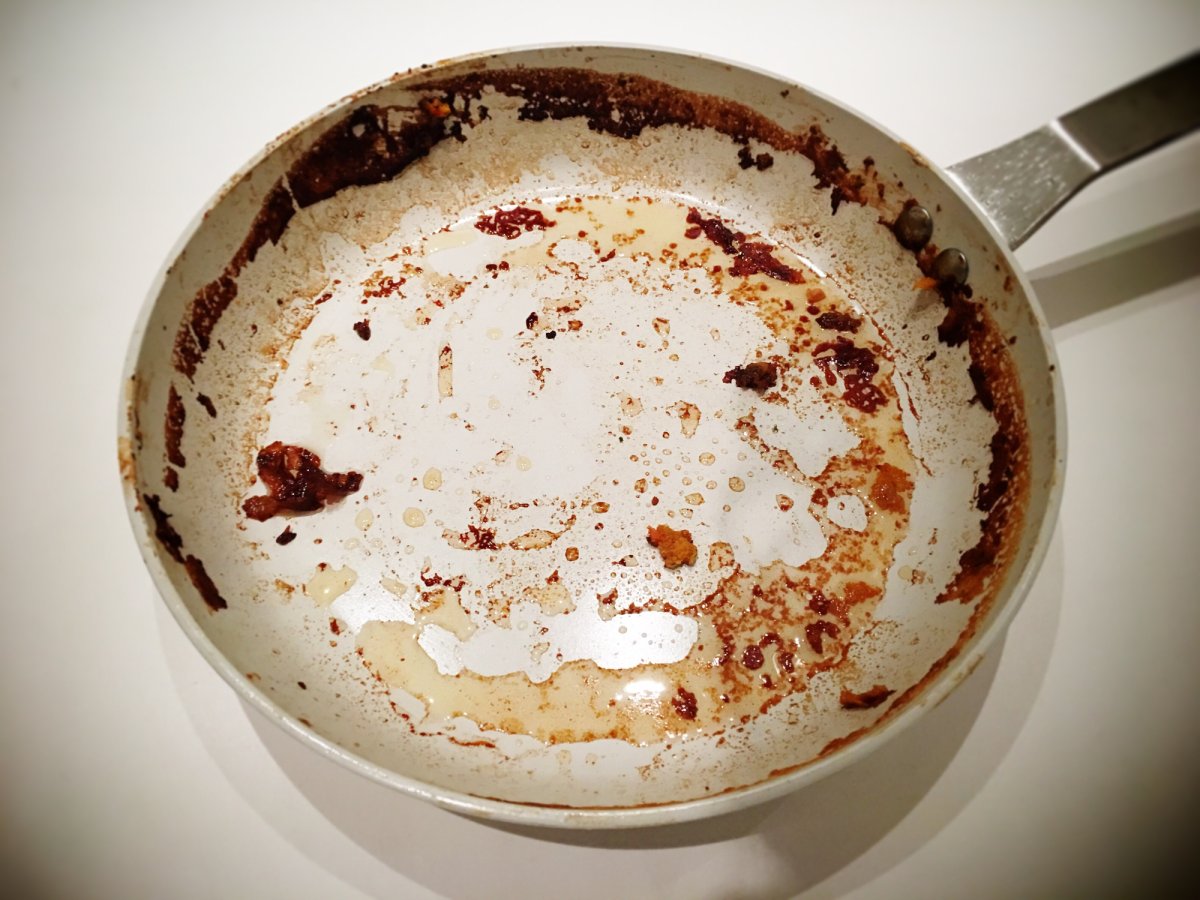We all have those pots and pans coated in stains and grease. And no matter how many times we use them or wash them, they never look like they did on their first day.

Author and cleaning expert Becky Rapinchuk of the Clean Mama blog based in Chicago, says when it comes to burnt pots and pans, most people don’t clean them right away.
“I think by the time the cooking is over, most people are ‘done’ with working in the kitchen and leave the pots and pans until the next day,” she tells Global News.
READ MORE: 6 of the dirtiest kitchen appliances — and how to clean them
And while soap, chemical cleaners and dish scrubbers can only go so far, Apartment Therapy recommends a DIY cleaning recipe with vinegar, baking soda and water.
Simply mix all the ingredients in the pan, bring it to boil, and scrub away all the gunk.
Rapinchuk also has a solution for cleaning cast iron skillets, and she says to make things easier, always clean your cast iron as soon as possible — preferably when it is warm.

“Unlike traditional cookware, cast iron will not benefit from soaking in your sink. Exposure to water for long periods of time can lead to rust issues,” she wrote on her blog.

Get daily National news
For her cleaning solution, Rapinchuk adds all you need is vegetable oil and coarse salt. And if you still see rust, grab a potato.
“It sounds like an odd cleaning combination, but the moisture from the potato combines with the gentle abrasive nature of the salt to do the trick. You may need to re-season your pan in order to restore the nonstick surface at this point.”
READ MORE: All the household items you can clean with vinegar — and a few you can’t
She adds the quality of the pot or pan doesn’t always matter, and taking care of them is more important. And for those who can’t seem to figure out why their kitchen essentials are always burnt or greasy in the first place, Rapinchuk says we are either not washing them properly or cooking at too high of a heat. Sometimes, you just have to know when to replace them.
“Replace non-stick when the surface is starting to show signs of wear. Replace other pots and pans when they are bent, warped, or worn. Cast iron will last forever and just needs to be seasoned.”
Below, Rapinchuk gives us tips on how to clean those pesky pots and pans.
Wash things right away
Always wash your pots and pans as soon as you’re done using them.
“If you can’t wash right away, soak it in the sink with hot, soapy water,” she says.
READ MORE: How often you should wash your sheets and 7 other household items
The right scrub
“Stainless steel scrubbing sponges work amazingly well on stainless steel to remove any burnt-on food or grease stains,” Rapinchuk says. Use with soapy water and scrub and rinse and repeat if necessary.
Non-stick coatings
“Non-stick coatings just need a scrub brush and warm, soapy water.”
Cutting out residue
Copper scrubbers or pads can be used wet or dry on pots and pans to remove residue, she says.








Comments